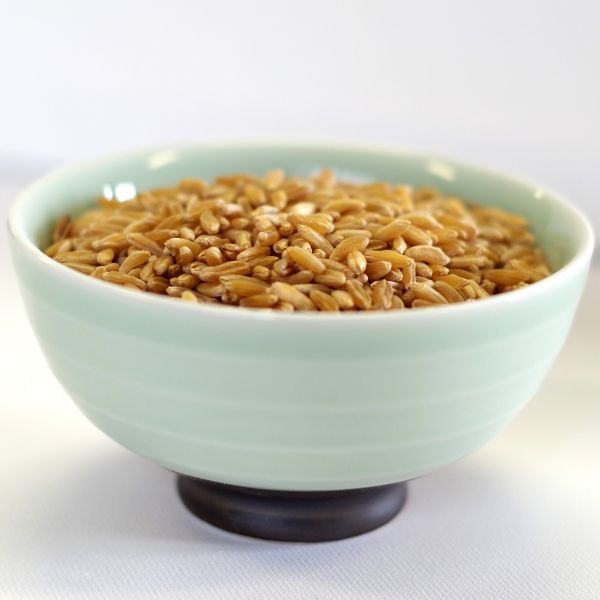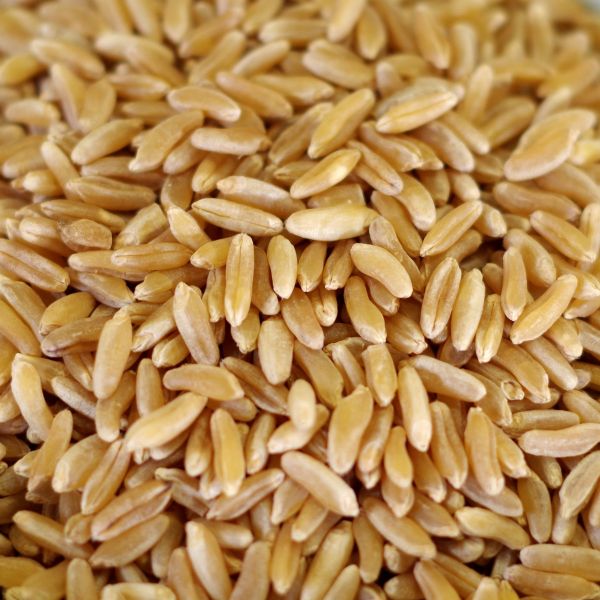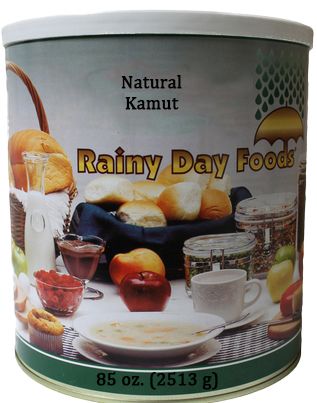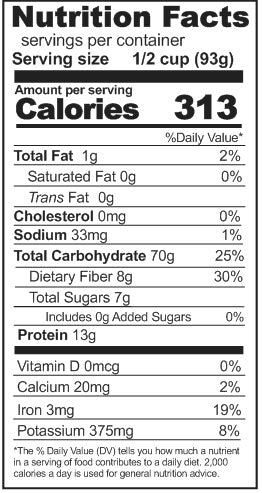Kamut, a chemical-free grain, is a variety of khorasan wheat and has ancient origins with all of the essential nutritional attributes that gave ancient wheat the term "staff of life" in Biblical times. It has a high percentage of lipids making it a "high-energy" wheat and also contains a high content of selenium, a mineral known for its antioxidant capacity. Kamut can be ground into flour to make pasta and breads. Many people that are sensitive to wheat can eat this grain although it does contain gluten so it is not recommended for those with celiac disease. This is a great addition to add variety to your long-term food storage.
Shelf life estimates are based on industry studies from sources deemed reputable. Since Rainy Day Foods has no control over individual storage practices, they must disclaim any liability or warranty for particular results.
Shelf Life: Should be stored in cool dark place- optimum condition is 60 degrees or less- for longer storage. Storing properly in our enameled cans and Super pail buckets, product may store up to 20-25 years. Bulk products need to be repackaged for long term storage.
Packaged in a plant that handles milk, wheat, eggs, soy, and tree nut products.
| NUTRITIONAL INFORMATION |
Directions: Use in breads or cereals. Grind for flour. Can also be used in pilafs and cold salads. Methods for cooking KAMUT: 1. Stovetop Method: Soak 1 cup of KAMUT overnight; then add 3 cups of water and bring it to a boil. Add a pinch of salt (if needed), turn heat to low and simmer for 40-45 minutes or until tender. Note: Not soaking it will increase the cooking time substantially. If you do soak it, you may not need all of that water to cook it in. 2. Pressure Cooker Method: Although the need to soak is not necessary it helps with the cooking process. Start out with 1 ½ cups of water to one cup of KAMUT. Increase it to 2 cups if this isn’t enough. 3. Steamer Method: For 1 cup of KAMUT use 2 ½ cups of water. Place it in a steamer and it takes approximately one hour. |
|---|




